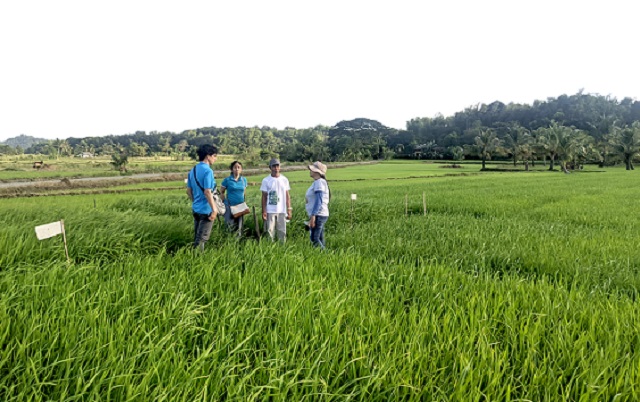
Rice farmers in Butuan City observe the performance of hybrid rice in a 100-ha contiguous farm in Brgy. Lemon, Basag, Ampayan during the recent 11th National Rice Techno-Forum.
Among the 26 hybrid rice varieties showcased include NSIC Rc 204H or Mestiso 20 (M20) and five inbred rice varieties.
“One way to achieve higher yield and income is through hybridization and technologies that reduce rice production costs,” said Caesar Joventino Tado, branch director of the Department of Agriculture-Philippine Rice Research Institute (DA-PhilRice) in Agusan.
In the demo farm, PhilRice showcased M20’s crop establishment methods, which include manual and mechanical transplanting and direct-seeding (broadcast and drum seeder).
Developed by DA-PhilRice and University of the Philippines-Los Baños, M20 yields from 6.4- 11.7t/ha. It matures 111 days after sowing and is moderately resistant to yellow stem borer, green leafhopper, and brown planthopper. It also has an intermediate eating quality with a 20.2% amylose content.
Meanwhile, studies show that Filipino farmers spend 65 days per hectare throughout the rice production process. In highly mechanized countries including China, Vietnam, and China, farmers work for 10-35 days per hectare.
Abel James Monteaguido, DA-RFO XIII regional executive director, added that complementing hybridization with mechanization will increase yield and income as machines reduce production costs.
Field tours and technical discussions also highlighted the forum.




